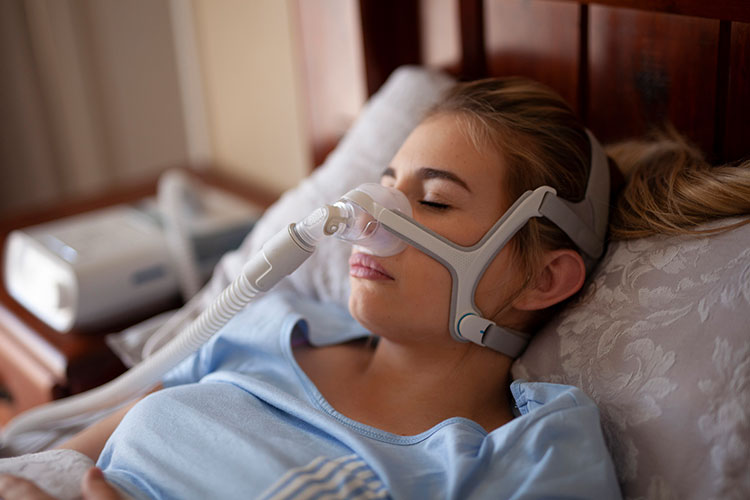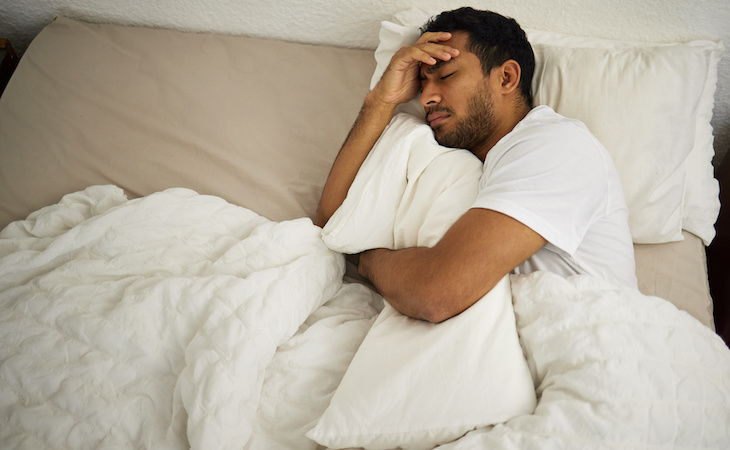Reliable Insomnia Therapy - Regain Your Restful Nights
Reliable Insomnia Therapy - Regain Your Restful Nights
Blog Article
Effective Treatment Solutions for Handling Rest Disorders and Enhancing Relaxing Sleep
In the realm of health care, the administration of rest conditions and the pursuit for relaxed rest are critical components of general health. As we browse the elaborate landscape of sleep disorders and seek to boost our rest experience, a deeper understanding of these therapy options might hold the secret to opening a more refreshing and satisfying corrective journey.
Cognitive Behavior Modification for Sleep Problems (CBT-I)
Cognitive Behavioral Therapy for Sleep Problems (CBT-I) is a structured, evidence-based therapy strategy that concentrates on addressing the hidden elements adding to rest disturbances. This sort of treatment intends to modify actions and thoughts that worsen sleeplessness, eventually advertising healthy and balanced sleep patterns. CBT-I normally involves a number of essential components, consisting of cognitive therapy, sleep constraint, stimulus control, and rest hygiene education and learning.
Cognitive therapy aids people recognize and change unfavorable thought patterns and ideas about rest that may be preventing their ability to drop or stay asleep. Rest restriction includes limiting the amount of time invested in bed to match the individual's actual rest duration, consequently boosting rest performance (sleep therapy). Stimulation control methods assist establish a solid organization between the bed and rest by encouraging people to head to bed only when drowsy and to stay clear of participating in boosting activities in bed
Additionally, rest hygiene education focuses on developing healthy rest behaviors, such as preserving a regular sleep timetable, producing a relaxing bedtime regimen, and maximizing the sleep setting. By dealing with these factors comprehensively, CBT-I supplies an effective non-pharmacological treatment for managing sleeplessness and boosting overall rest top quality.
Rest Health Practices
Having established the foundation of cognitive restructuring and behavioral alterations in dealing with sleep problems via Cognitive Behavioral Treatment for Sleep Problems (CBT-I), the emphasis currently moves towards exploring crucial Sleep Health Practices for maintaining ideal rest high quality and total health.
Sleep health practices include an array of practices and environmental aspects that can considerably influence one's ability to drop asleep and stay asleep throughout the night. Regular sleep and wake times, creating a relaxing bedtime regimen, and optimizing the sleep setting by keeping it dark, peaceful, and cool are important components of excellent rest hygiene. Restricting direct exposure to screens before going to bed, preventing energizers like caffeine near to bedtime, and participating in routine exercise throughout the day can additionally advertise better sleep high quality.
Moreover, exercising relaxation methods such as deep breathing exercises or reflection prior to bed can help soothe the mind and prepare the body for sleep. By incorporating these sleep hygiene practices right into one's everyday regimen, people can develop a healthy sleep pattern that sustains relaxing sleep and total health.
Leisure Techniques and Mindfulness
Carrying out relaxation techniques and mindfulness techniques can play a crucial duty in promoting a sense of tranquility and advertising top quality sleep. In addition, assisted images can assist move people to a peaceful area in their minds, assisting in stress and anxiety reduction and improving rest high quality.
By incorporating these methods right into a going to bed regimen, people can signal to their bodies that it is time to loosen up and prepare for rest. Overall, integrating relaxation strategies and mindfulness methods can considerably contribute to taking care of rest conditions and boosting general rest quality.

Medication Options for Sleep Disorders
After discovering relaxation methods and mindfulness techniques as non-pharmacological interventions for boosting sleep high quality, it is vital to think about medicine choices for people with rest disorders. In cases where way of life adjustments and treatment do not provide sufficient relief, medication can be a useful device in taking care of rest disturbances.
Frequently prescribed medications for rest disorders include benzodiazepines, non-benzodiazepine go to this site hypnotics, antidepressants, and melatonin receptor agonists. Benzodiazepines, such as diazepam, are sedatives that can aid cause sleep, yet they are generally suggested for temporary use due find more information to the risk of reliance. Non-benzodiazepine hypnotics like zolpidem are likewise utilized to deal with sleep problems and have a lower risk of dependancy contrasted to benzodiazepines. Antidepressants, such as trazodone, can be useful for people with co-occurring clinical depression and sleep disturbances. Melatonin receptor agonists, like ramelteon, target the body's natural sleep-wake cycle and can be helpful for controling rest patterns.
It is critical for people to seek advice from a doctor to figure out the most appropriate medication alternative based upon their certain sleep condition and case history.
Light Therapy for Circadian Rhythm Regulation
Light therapy, also called photo-therapy, is a non-invasive therapy technique used to regulate circadian rhythms and enhance sleep-wake cycles. This treatment entails direct exposure to brilliant light that mimics natural sunshine, which assists to reset the body's biological rhythm. By revealing people to certain wavelengths of light, typically in the morning or evening relying on the wanted effect, light treatment can successfully adjust the body clock to advertise wakefulness during the day and improve relaxing rest during the night.
Research has shown that light treatment can be specifically helpful for people with body clock conditions, such as delayed sleep stage disorder or jet lag. It can likewise be helpful for those experiencing seasonal depression (SAD), a type of clinical depression that typically happens throughout the cold weather when all-natural light direct exposure is reduced. Light therapy is typically well-tolerated and can be utilized combined with various other therapy approaches for sleep disorders to enhance end results and enhance total rest top quality.
Verdict
To conclude, effective therapy services for handling sleep disorders and enhancing relaxing sleep include Cognitive Behavioral Therapy for Sleeplessness (CBT-I), rest health methods, leisure methods and mindfulness, drug alternatives, and light therapy for circadian rhythm policy. These strategies can assist individuals improve their rest high quality and total health. It is necessary to seek advice from with a medical care provider to determine one of the most suitable approach for addressing rest problems.
As we navigate the elaborate landscape of sleep problems and look for to boost our rest experience, a much deeper understanding of these therapy solutions go to my site may hold the trick to opening a much more refreshing and fulfilling corrective journey.
Rest limitation involves restricting the quantity of time spent in bed to match the individual's actual sleep duration, therefore enhancing sleep effectiveness. Consistent sleep and wake times, developing a relaxing going to bed routine, and maximizing the rest atmosphere by maintaining it dark, peaceful, and cool are vital parts of excellent sleep health. Light treatment is typically well-tolerated and can be used in conjunction with various other therapy methods for rest disorders to optimize end results and enhance overall rest high quality.

Report this page